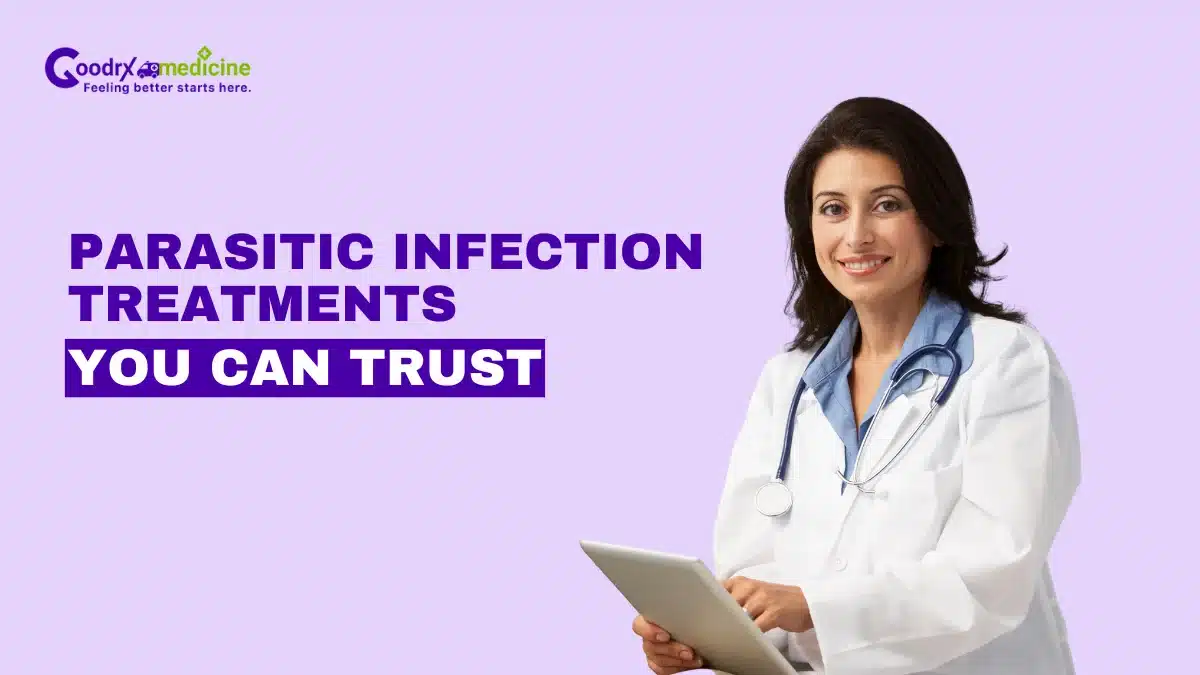Parasitic infections are a major health concern across the globe, impacting millions of people globally, particularly in tropical and subtropical regions. While many people associate parasites with poor or isolated areas, global travel, climate change, and urbanisation can also contribute to their growth.
Effective treatment is essential not just for symptom relief but also to avoid complications and transmission to others. With advances in medical research, several effective antiparasitic medications are now available, each customised to fight a specific parasite.
However, therapeutic effectiveness depends on proper diagnosis, medication selection, and patient commitment to therapy. This article explores all the effective parasitic infection treatments to resist these sneaky invaders.
Available parasitic infection treatments
Parasitic infections are caused by organisms, including protozoa, helminths, or ectoparasites, that live in or on a host. They feed on the host’s resources and cause symptoms ranging from slight gastrointestinal discomfort to potentially fatal complications. Treatment varies depending on the parasite and the location of infection.
Now, let’s look at the best treatments for parasitic infections depending on the form of parasite (protozoa, helminths, or ectoparasites).
Save up to 90% on your medicine bills
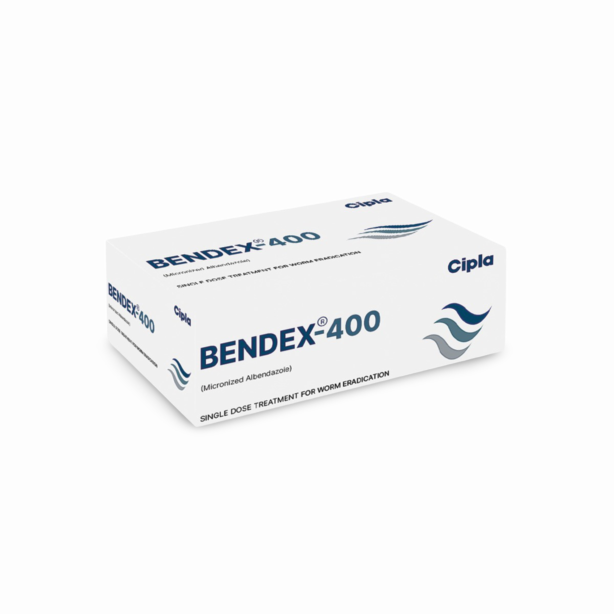
Bendex 400 Tablet
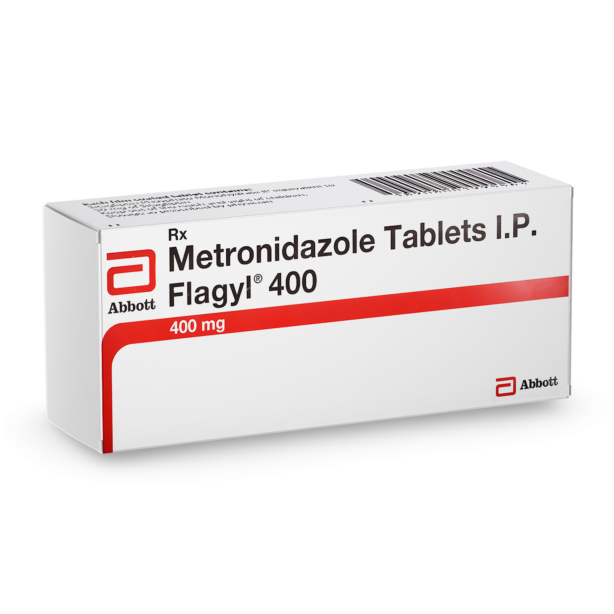
Flagyl 400 mg
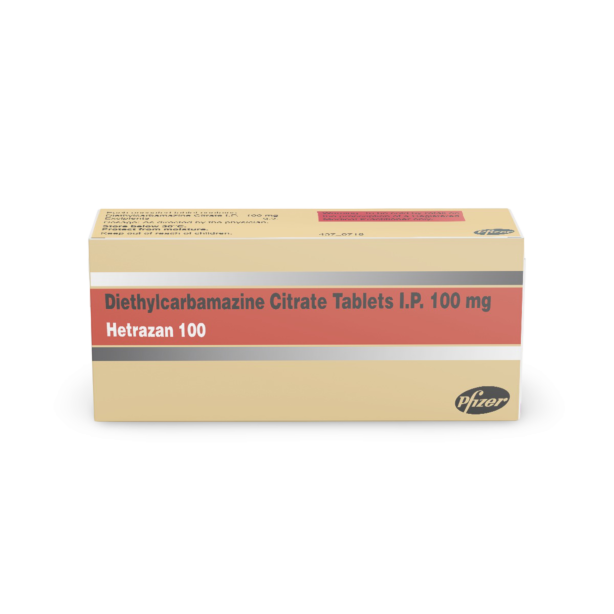
Hetrazan 100 Tablet
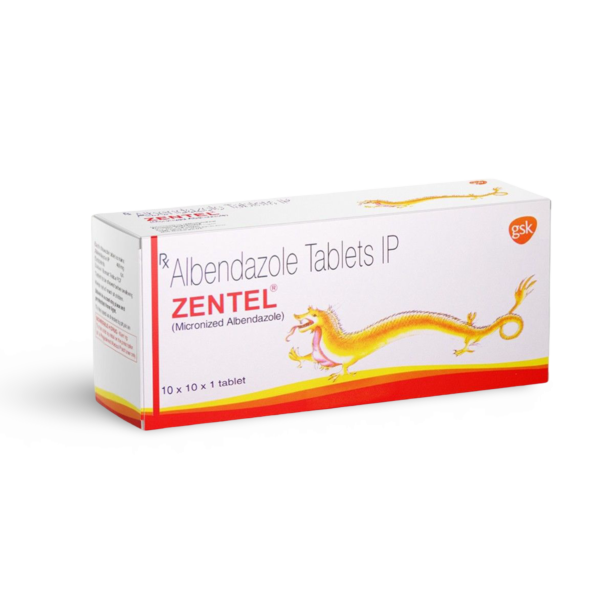
Zentel 400 mg
Protozoan infections
Malaria, Amoebiasis, Giardiasis, Leishmaniasis, African Trypanosomiasis, and Chagas Disease are some of the common infections caused by Protozoa. The following are some commonly employed medications for these diseases:
Malaria (Plasmodium species)
Treatment depends on the Plasmodium species, geographic location, and severity.
- Chloroquine is the first-line treatment for Malaria caused by P. vivax, P. ovale, P. malariae, and P. knowlesi. Primaquine is frequently used against P. vivax and P. ovale to target liver stages and avoid recurrence.
- Artemisinin-based Combination Therapies (ACTs), such as Artemether-Lumefantrine or Atovaquone-proguanil, are recommended for Chloroquine-resistant P. falciparum Protozoa.
- For severe or complex P. falciparum malaria, the preferred treatment is intravenous (inside the veins) Artesunate, followed by oral ACTs.
Amoebiasis (Entamoeba histolytica)
Treatment options for Amoebiasis include Metronidazole or Tinidazole. Paromomycin or Diloxanide furoate may be used to eliminate cysts.
Giardiasis (Giardia lamblia)
Metronidazole is the primary treatment. Tinidazole, Nitazoxanide, and Albendazole are also potential alternatives. Furazolidone is a treatment option for pediatric patients.
Leishmaniasis (Leishmania species)
Treatment varies greatly depending on the species, symptoms (cutaneous, mucosal, or visceral), and geographic location. Medications include Liposomal amphotericin B, Miltefosine, Paromomycin, and Sodium stibogluconate.
African Trypanosomiasis (Sleeping Sickness – Trypanosoma brucei)
Treatment is determined by the stage of the disease (early or late, affecting the central nervous system). Pentamidine, Suramin, Fexinidazole, and Nifurtimox-eflornithine combination treatment.
Chagas Disease (Trypanosoma cruzi)
The major medications for Chagas Disease are Benznidazole and Nifurtimox, which are most effective in the initial phase. As per an article published by the Antimicrobial Agents and Chemotherapy journal in 2015, Benznidazole is the first line treatment for Chagas Disease.
Helminthic infections
Soil-transmitted helminth infections, Schistosomiasis, Fascioliasis, Lymphatic filariasis, Cysticercosis, and Echinococcosis are common helminthic infections that are often treated using the following medications:
Soil-Transmitted Helminths (STHs – Roundworm, Hookworm, Whipworm)
Albendazole and Mebendazole are broad-spectrum anthelmintics commonly used in Mass Drug Administration (MDA) programs to treat soil-transmitted helminth illnesses caused by roundworm, hookworm, and whipworm.
Schistosomiasis (Schistosoma species)
Schistosomiasis is generally treated with Praziquantel, an antiparasitic medicine that is effective against all major parasite species. The medicine paralyzes the worms, allowing the immune system to remove them. Treatment is often administered in a single dosage over one day, which is frequently repeated depending on the severity of the illness and the likelihood of reinfection.
Fascioliasis (Fasciola hepatica)
Fascioliasis, a parasitic illness caused by liver flukes (mostly Fasciola hepatica), is commonly treated with the antiparasitic medicine Triclabendazole. This medicine is effective in treating both immature and adult flukes and is often administered in a single or split dosage. In conditions where Triclabendazole is unavailable or ineffective, other therapies such as Bithionol may be used.
Lymphatic filariasis (Wuchereria bancrofti, Brugia malayi, and Brugia timori)
Diethylcarbamazine (DEC) is often used to treat the condition. Combining Ivermectin and Albendazole is also highly effective and utilised in MDA programs.
Cysticercosis (Taenia solium larvae)
Treatment involves antiparasitic medications like Albendazole and Praziquantel, often combined with corticosteroids to manage inflammation caused by dying parasites. Surgery may be required for particular cyst sites.
Echinococcosis (Hydatid Disease – Echinococcus species)
Echinococcosis, commonly known as Hydatid disease, is treated according to the type, size, and location of the cysts. Antiparasitic medications, such as Albendazole or Mebendazole, are common treatment choices for smaller or inoperable cysts. In more severe or difficult situations, surgical removal of the cysts may be required.
Ectoparasitic infections
Scabies and Lice are two major infections caused by ectoparasites like lice, mites, and fleas. These infections can be treated with the following medicines:
Scabies
Scabies, caused by Sarcoptes scabiei mites, is commonly treated with Permethrin 5% cream, a first-line topical agent applied from the neck down and left on for 8–14 hours before washing off. An oral alternative, Ivermectin, is especially effective in severe cases or outbreaks, and is often used in crusted scabies or when topical application is impractical.
Lice (Pediculosis)
Lice, including head, body, and pubic lice, are also treated with Permethrin 1% lotion, Pyrethrins combined with Piperonyl Butoxide, or prescription-strength options like Malathion lotion or Spinosad 0.9% topical suspension. In resistant cases or when recurrence is common, oral Ivermectin may be prescribed.
Supportive care and preventive measures
Supportive care is an essential component of parasitic infection treatment. This includes:
- Fluid and electrolyte supplementation: It is essential for parasite infections that cause severe diarrhea.
- Nutritional assistance: It involves addressing malnutrition, which is common in persistent parasite diseases.
- Anaemia management: It includes iron supplements and, if necessary, blood transfusions.
Prevention of parasitic infections is essential and includes, but is not limited to:
- Good personal hygiene: Frequent handwashing with soap and water, mainly after using the restroom and before preparing food.
- Safe food and water habits: Drink purified or boiled water, avoid untreated water sources, properly cook meat, and wash fruits and vegetables.
- Insect bite prevention: It includes using insect repellents, sleeping in insecticide-treated bed nets, and wearing protective clothes in endemic regions.
- Proper sanitation: Safe disposal of human and animal waste.
- Avoid direct contact: Avoid direct contact with infected people, animals, and polluted soil or surfaces.
- Mass Drug Administration (MDA) programs: In infected locations, whole communities are treated regularly to lower parasite load and prevent transmission.
- Travel precautions: When going to high-risk locations, consult your healthcare professional about preventive medications and other measures.
Conclusion
Parasitic infection treatment requires a thorough, customised approach considering the parasite species, infection location, and individual patient variables. Antiparasitic medications such as Albendazole, Praziquantel, Metronidazole, and Artemisinin-based therapy constitute the basis of treatment.
However, supportive care and preventive methods are required. These include better sanitation, parasite control, and planned deworming, critical for lowering infection rates, particularly in infected areas.
Combining medical treatment with public health activities can considerably reduce the worldwide burden of parasitic infections and improve outcomes for affected people.

Frequently Asked Questions
How do I check myself for parasites?
Monitor symptoms like unexplained fatigue, digestive issues, itching, or weight loss for parasites. Examine stool for worms, rashes, or bite marks. Consult a doctor for stool tests, blood tests, or imaging for an accurate diagnosis.
Can probiotics help during parasitic treatment?
Yes, probiotics may help restore gut flora disrupted by parasites or medications like metronidazole. They support digestion, reduce diarrhoea, and may enhance immune responses, but they are not a substitute for antiparasitic drugs.
Do parasites cause mental health symptoms?
Yes. Some parasites, like Toxoplasma gondii, have been linked to mood changes, anxiety, or cognitive effects. Neurocysticercosis can cause seizures and confusion. These symptoms often resolve with appropriate treatment and neurological support.
How long should I avoid alcohol while on antiparasitic medication?
Avoid alcohol during and for 48–72 hours after completing Metronidazole or Tinidazole due to the risk of nausea, flushing, or vomiting. Other medicines like Albendazole don’t usually require alcohol restriction, but caution is advised.
Do all parasitic infections cause symptoms?
No, many infections like Entamoeba histolytica or Toxoplasma may remain asymptomatic for years. However, they can become active if the immune system weakens, so diagnosis and monitoring are essential.
When referencing outside resources, GoodrxMedicine always provides full citations. To learn more about the measures we use to maintain the quality of our content, please review our Content Information Policy.



